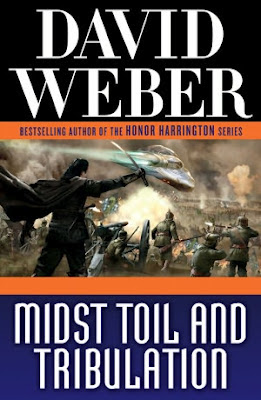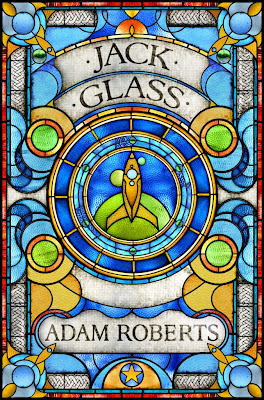INTRODUCTION: A few days ago I was quite surprised to notice that a book that seemed to be called either Alt.Human (love this title) or Harmony by Keith Brooke was published at the end of May. As I quite enjoyed The Accord especially for its wonderful style, I immediately looked for more information and then got the book asap.
"The aliens are here, all around us. They always have been. And now, one by one, they’re destroying our cities.
Dodge Mercer deals in identities, which is fine until the day he deals the wrong identity and clan war breaks out. Hope Burren has no identity and no past, but she does have a multitude of voices filling her head.
In a world where nothing is as it seems, where humans are segregated and aliens can sing realities and tear worlds apart, Dodge and Hope lead a ragged band of survivors on a search for sanctuary in what may be the only hope for humankind."
OVERVIEW/ANALYSIS: On finishing it, I was a little mixed about Harmony (alt.human in the UK) by Keith Brooke though I generally liked it and I really enjoyed the frantic first person narration and the final twist. However, for large parts of it Harmony had an adolescent feel and as I've seen its themes treated in an adult way much better, it turned out to be a pretty minor sf novel that read like an airport thriller (see William Barton's When Heaven Fell for one of the best ever treatments of the themes of Harmony).
Harmony is also a Fermi paradox novel, though in this case instead of "where are they", they (ie the aliens) are everywhere and the humans are sort of serfs/pets restricted to IPP (Indigenous People's Preserves) ghettos where they live at the will of the powerful aliens who may - and do - kill them at their whim.
Dodge, a pid runner - every human has personal identification device nanos in his/her blood stream, who define where the human can go, and the local gangs into which the humans are generally divided found how to fake them - is involved with the saving of four human refugees from a destroyed city and later together with the mysterious girl Hope whom he has also saved earlier, tries to find the rumored last refuge of humanity called Harmony...
Harmony had a lot of possibilities - the sadly short descriptions of alien landscapes and cities on Earth was as good as sf goes - but the way the author chose to go precluded them and turned the novel into "fugitive" on steroids. I will quote one long paragraph below which shows the sense of wonder I expect from sf and I wish the book would have tried to develop instead of turning into a generic action-adventure novel:
"Here, in Central, the roads were alive. Place your foot and the surface would arrange itself to your imprint; lift that foot and the surface gave you an extra push – wheeled vehicles got such a push from the road surfaces that they barely needed to propel themselves at all, or so I had been told.
All around, the buildings loomed above me. Buildings with mirrored fronts, moving images blending with what they reflected, so that it looked as if my inverted self was passing through a distorted, surreal landscape. Buildings that were all sharp angles and flat surfaces; buildings that were organically globular, jellied so that beings passed through apparently solid walls, absorbed into the bodies of the buildings. I did not know what was inside them; perhaps you passed through into air, like a normal building, or perhaps you remained in jelly or fluid as you conducted your business. Other buildings were covered in webbed silk nests that were alive with dragonflies and all varieties of flying creatures – the nests could have been the homes of sentient beings or they could have been the nests of parasites and vermin.
Looking up: the undersides of the mushroom towers were lit up with rhythmic traceries of light, all supported by implausibly slender central stalks. Flying vehicles darted and twisted; flying beings cut through the flow.
And all about, a seething, chaotic throng of bodies. Aliens of all varieties mixed with humans and trogs. The humans and nearly-men here were business-like, some of them half-mech, others cauled in alien webbing, controlled, not human at all.
The aliens walked on two legs, three, four or more; they floated on personal transports; they sat in self-contained personal environments, sealed off from the world. They strode, rolled, flitted, hopped, skittered, flew, ran... They travelled in all directions, yet appeared to know when to give way and when to plough on. They chattered, clicked, shrieked and yammered; they rumbled and groaned and whooped and roared. They smelled of urea and dung and decay, of perfumed flowers and sharp spices, of raw meat and chlorine.
There must be a billion cities like this on a million worlds. More. I couldn’t grasp the scale of the universe, couldn’t hold it in my head. Perhaps this was why we humans hid in our Ipps: we really were the hangers-on, unable to take the pace of being full members of such a diverse, galaxy-spanning community."
I read this "humans as serfs and pets of superior alien races" theme for the first time when I was about 10 in a Romanian sf magazine short story (a little bit surprisingly as the communist regime usually asked its writers for uplifting stories and downers were generally not allowed) and it impressed me a lot and stamped my love of sf, but that was 33 years ago and today I expect more sophistication which Keith Brooke amply demonstrated in his wonderful The Accord or in the paragraph above.
So overall, Harmony turned out to be a pretty engaging but ultimately minor sf.












